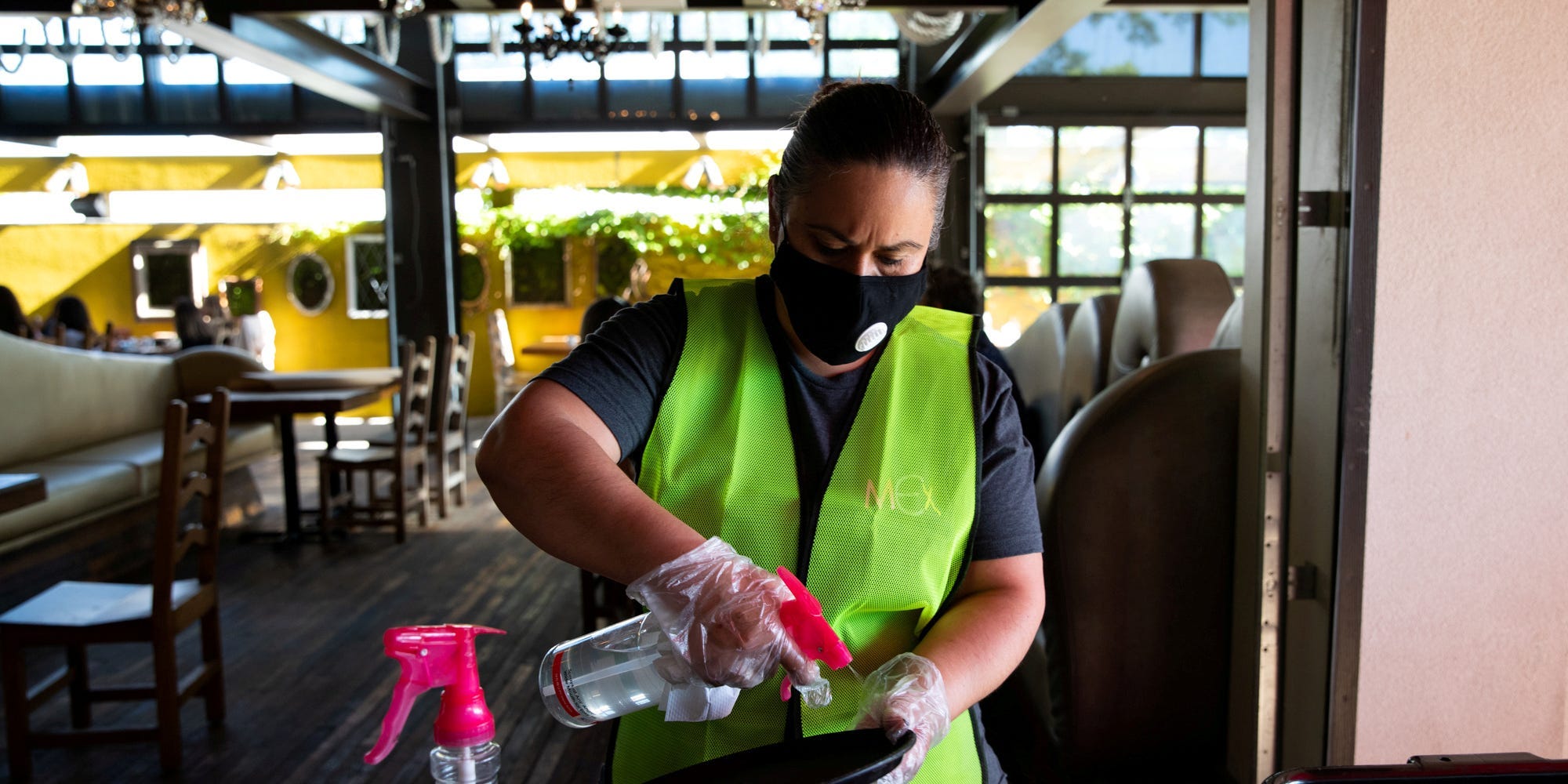
Reuters
- Nevada, California, and Hawaii had the largest unemployment spikes in 2020, new BLS data shows.
- Nebraska, Utah, and South Dakota saw their unemployment rates rise the least.
- Employment-population ratios sank to all-time lows in 15 states including Illinois and Virginia.
- Visit the Business section of Insider for more stories.
The coronavirus sparked the worst unemployment crisis in nearly a century, but the damage differs significantly state by state, according to new data from the Bureau of Labor Statistics.
The nationwide unemployment rate averaged 8.1% throughout 2020 as the pandemic fueled a massive leap in unemployment before giving way to a now-meandering recovery. Yet that overall figure fails to capture massive disparities at the state level.
For one, four states saw average annual unemployment rate above 10% last year. Nevada faced the bleakest downturn, with unemployment averaging 12.8% in 2020. Hawaii and California followed with averages of 11.6% and 10.1%, respectively.
New York – the epicenter of the nation’s first COVID-19 outbreak – saw unemployment average 10% in 2020, according to the Wednesday report.
Conversely, some states’ labor markets saw negligible upticks in unemployment. Nebraska fared the best, with its own rate of 4.2% nearly halving the nationwide figure. Close behind were South Dakota and Utah with average rates of 4.6% and 4.7%, respectively.
Gaps also emerged in states' employment-population ratios. The metric is a popular alternative measure of unemployment since it counts Americans who dropped out of the labor force.
The ratios fell to record-lows in 15 states, supporting fears that the economic fallout is among the worst ever seen in the US. Nevada, Hawaii, and Rhode Island suffered the biggest declines of the group. The national ratio fell to 56.8% from 60.8% last year.
Mississippi and West Virginia posted the lowest ratios of 50.6% and 50.3%, respectively. To be sure, the readings weren't the lowest in history for either state. Nebraska ended the year with the highest employment-population ratio of 66.7%.
Overall, 23 states boasted ratios higher than the national figure. Yet all 50 states and the District of Columbia saw their employment-population ratios decline from levels seen in 2019.
